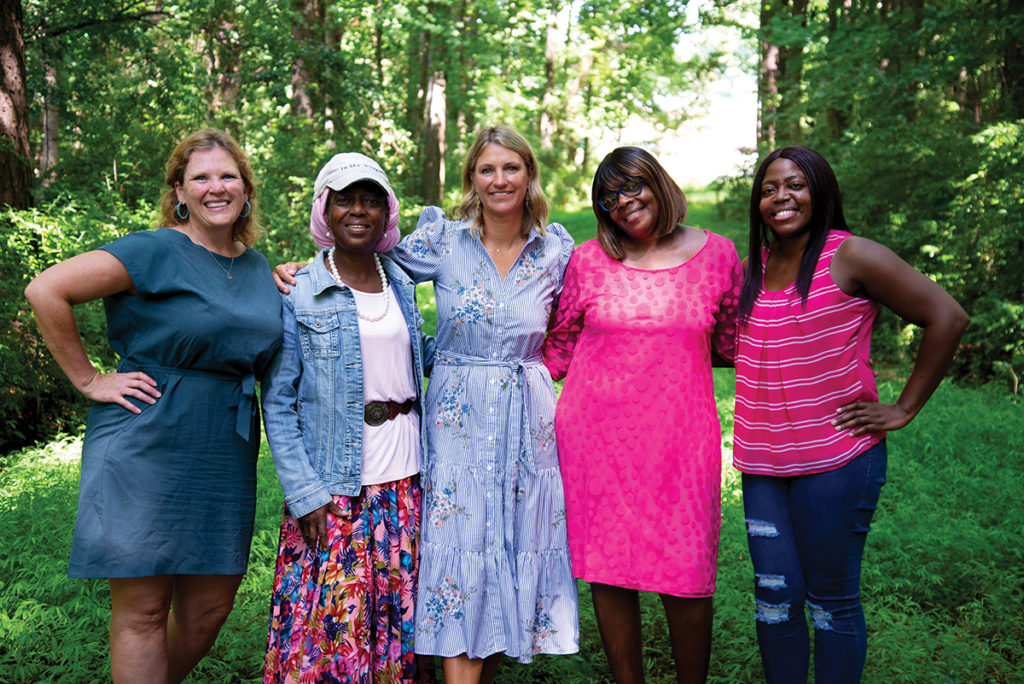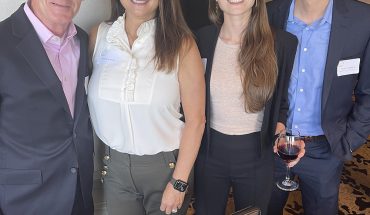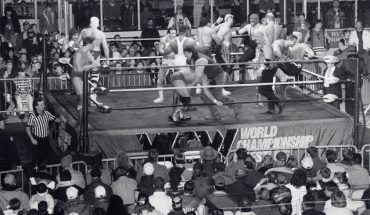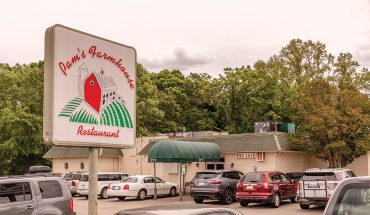This advocate turned a spark of inspiration into a campaign with CASA to build 100 homes for Raleigh’s unhoused.
by Liza Roberts | photography by Tyler Cunningham
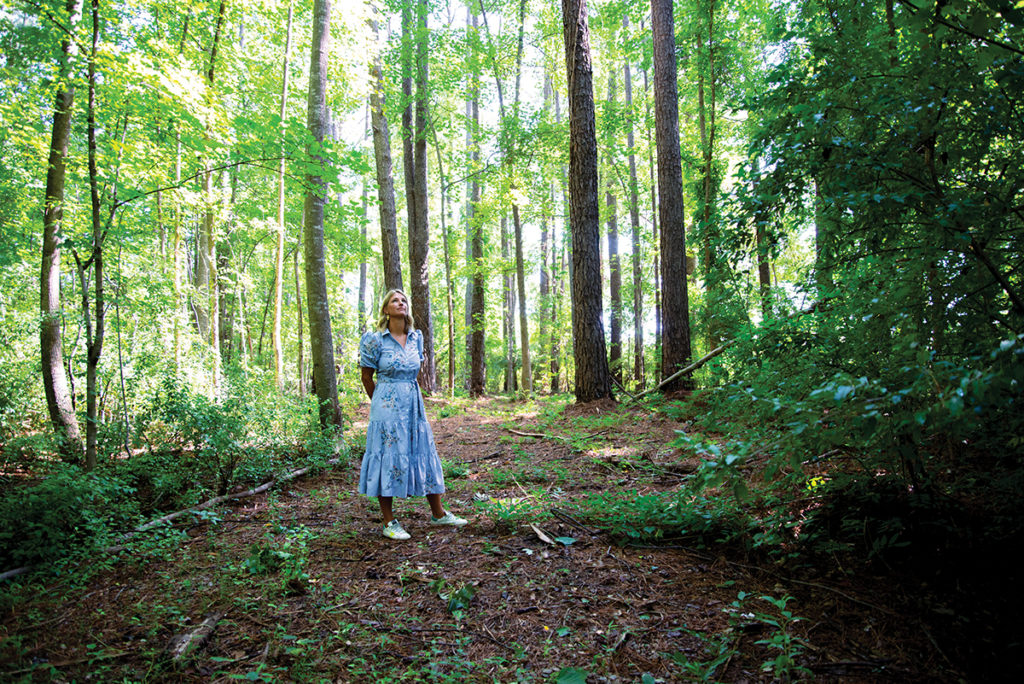
It was a sunny day in 2018 when Molly Painter grabbed a book and headed to the beach for some downtime. The Hundred Story Home by Kathy Izard had been on her shelf for months, but Painter hadn’t cracked the cover. Finally reading the book — a firsthand account of one woman’s successful mission to build housing for Charlotte’s homeless — hit her like a bolt. It galvanized her to action and changed her life and the lives of hundreds of others in the process.
“I literally felt like God was saying, You have to do this,” Painter recalls. “I was crying. I went inside and said to my husband, Michael, this is what we have to do.”
The calling was new, but the context was not. Painter had already befriended several homeless women she’d come to know at The Women’s Center day shelter in downtown Raleigh, where she’d been serving lunch and regularly meeting women for coffee. Painter, her husband and their three girls had attended church with these friends, shared lunches and dinners with them, gone on walks with them, driven them to appointments, taken them to see A Christmas Carol.
“I felt so connected to the women from the beginning,” Painter says. The more time she spent with them, the closer she got, and the more concerned she became for their health and well-being. Most of them slept in a covered area in a downtown parking lot. It was unsafe and unsustainable. She and a group of fellow volunteers — including Betty Nelson, Fraley Marshall, Katie Koon, Sally Tanner and Marcie Porterfield — determined that what their friends needed most were stable homes.
“A lot of affordable housing is not for the most vulnerable,” Painter says, referring to more abundant workforce housing. “We wanted to serve people straight out of homelessness and surround them with services on-site.”
It was a bold vision, requiring substantial funds, experienced partners and determination. Painter sought out the advice of Izard and visited her housing community in Charlotte. She partnered with Missy Hatley, senior director of resource development at CASA — a Triangle nonprofit dedicated to ending homelessness through affordable housing — to outline a similar community housing project in East Raleigh, now known as King’s Ridge. And though she’d never raised money before, Painter helped bring in nearly $23 million by telling the story of her friends, their needs and the solution she and CASA envisioned. Donations came from individuals, corporations and foundations, and were combined with federal, state and local funding. Through the link with CASA, Painter also helped forge plans with WakeMed, Alliance Health and others to provide services on-site.
“Molly helped the community see how important this is, and how it required more than the city to solve it,” says Erin Yates, newly appointed director of King’s Ridge. “She made these friends [at the Women’s Center], and she saw their challenges and genuinely wanted to help lift them up. She sat, and she listened, and she didn’t try to change them. She heard a need from these women and went out to seek answers.”
On March 29, less than four years after that lightning-bolt day, Painter and the founding group of volunteers donned hard hats and broke ground on a 6-acre parcel of wooded land. The development, a 100-home community, will have on-site case management, health care and community space. And once it’s finished, hopefully in early 2024, King’s Ridge is estimated to single-handedly reduce homelessness in Wake County by 10 percent.
“I love Molly and I love what she’s done,” says Izard. She says she is honored to have played a part in inspiring the creation of King’s Ridge, but she will not take credit: “I would say my part in Molly’s story was to amplify the whisper she was already hearing.”
Painter is also quick to credit others. Starting at the beginning, she took a cue from Koon, who’d organized the weekly coffees with the women at The Women’s Center. “Katie broke down the barriers,” she says. “I thought, Oh, that’s how you do it. You just be yourself. And once I started to get to know these ladies, I just couldn’t wait to go back.”
The feeling was clearly mutual. “I fell in love with them,” says Painter’s friend Carol [last name redacted for privacy], who first met Painter at The Women’s Center in 2017 and met her family shortly thereafter. “When we met, my daughter and I were sleeping at Walmart in the car. Molly was serving lunch. She’s got a heart for people.”
Another friend from The Women’s Center, Rebecca, says Painter’s friendship is a gift from God. “She wouldn’t just serve food,” she says. “She would talk to us, and care, and ask us about our lives. She gave me her number. I tell her stories, and she follows up. She calls me. I like that she has a quiet spirit, like me. I like her heart.”
Now it’s Painter’s turn to be an inspiration to others. “We come with purpose, we are built with purpose,” Izard says, “and if you believe in it and you listen, and trust, anything is possible. And Molly has shown that in Raleigh.”
This article originally appeared in the November 2022 issue of WALTER magazine

